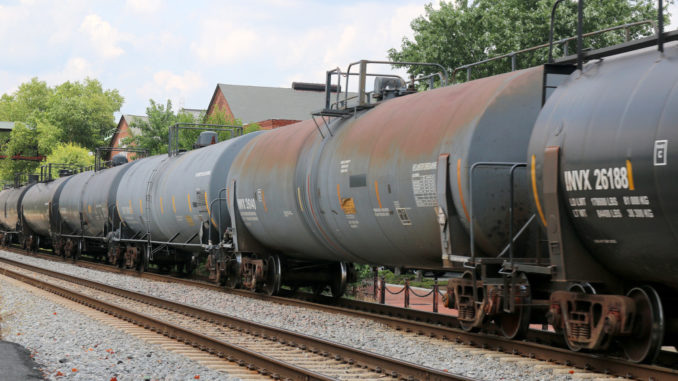
A new final rule from the Federal Railroad Administration (FRA) is aimed at preventing unattended trains carrying poisonous, toxic or highly flammable contents from rolling away.
Under the rule, railroad employees who are responsible for securing a trains must now permanently communicate with another qualified individual trained on the railroad’s securement requirements to verify trains and equipment are properly secured.
“Today’s rule is part of the Department of Transportation’s comprehensive effort to bolster the safety of trains transporting crude oil and other highly flammable contents,” U.S. Transportation Secretary Anthony Foxx said in a news release. “Verifying that a train has been properly secured is a common sense solution to prevent accidents.”
The final rule will go into effect 60 days from publication in the Federal Register. Exterior locks on locomotives will also be required by March 1, 2017, and must be utilized when a locomotive has been left unattended.
“Where the Federal Railroad Administration can take smart steps to quickly raise the bar on safety, it will, and that is exactly what we are doing today,” Acting Administrator Sarah Feinberg said in a news release. “Requiring that an additional, trained individual double check that the handbrakes have been set on a train will help stop preventable accidents. While today’s rule came out of a lesson learned from the Lac-Mégantic derailment, FRA will not hesitate to take additional actions to keep the rail system in the United States safe.”
On July 6, 2013, an unattended 74-car freight train carrying Bakken crude oil rolled downhill and derailed in Lac-Mégantic in Quebec. Forty-seven people died and many more were injured.
While the Canadian government found that there were nearly 20 causes of the accident, a major cause was that the engineer of the train did not properly secure the train. Since the Lac-Mégantic derailment, the U.S. Department of Transportation has taken more than 30 actions, including regulations, emergency orders, and safety advisories, to prevent train accidents and improve the safety of high-hazard flammable trains.

